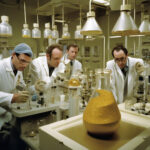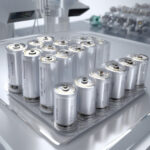New Injection Heals Heart After Attack, May Prevent Failure Before It Begins
Heart attacks remain a significant health concern in the United States. According to the Centers for Disease Control and Prevention (CDC), someone in the U.S. has a heart attack every 40 seconds. This alarming statistic underscores the urgent need for innovative solutions to not only treat heart attacks but also prevent the subsequent risk of heart failure.
In a groundbreaking development, researchers have unveiled a new injectable therapy that shows remarkable promise in healing the heart after a heart attack and potentially preventing heart failure from ever taking hold. This cutting-edge treatment could revolutionize the way we approach cardiac care and significantly improve outcomes for millions of patients worldwide.
The innovative injection, developed by a team of scientists at leading medical institutions, works by delivering a potent blend of therapeutic factors directly to the site of the heart injury. These factors stimulate the regeneration of healthy heart tissue, repair damage caused by the heart attack, and enhance the heart’s overall function. By targeting the root cause of heart failure early on, this novel approach holds the potential to disrupt the progression of the disease and offer patients a new lease on life.
One of the key advantages of this new injection is its ability to intervene at multiple stages of heart disease. Not only can it promote the healing of the heart post-heart attack, but it also has the unique ability to fortify the heart against future damage, thereby reducing the risk of recurrent cardiac events. This dual-action mechanism sets it apart from conventional treatments and positions it as a game-changer in the field of cardiology.
Moreover, the minimally invasive nature of the injection makes it a safe and viable option for a wide range of patients, including those who may not be candidates for traditional heart surgeries. This accessibility could potentially expand the reach of the therapy and benefit a larger segment of the population, ultimately saving more lives and improving overall cardiac health on a population scale.
While further clinical trials are needed to validate the long-term efficacy and safety of this innovative treatment, the early results are undeniably promising. Patients who have received the injection have shown significant improvements in heart function, exercise capacity, and quality of life, paving the way for a new era of personalized and effective cardiac care.
As we look to the future of cardiovascular medicine, it is clear that groundbreaking advancements like this injectable therapy are reshaping the landscape of heart disease management. By harnessing the power of regenerative medicine and targeted interventions, we are moving closer to a world where heart attacks are not just treatable but entirely preventable, ushering in a new era of heart health and vitality for all.
In conclusion, the development of a new injection that heals the heart after a heart attack and has the potential to prevent heart failure represents a significant leap forward in cardiovascular care. With its targeted approach, dual-action mechanism, and minimally invasive nature, this innovative therapy offers new hope for patients grappling with the devastating effects of heart disease. As research continues to unfold and more patients benefit from this groundbreaking treatment, we are inching closer to a future where heart attacks are no longer a leading cause of death, but a manageable condition that can be overcome with the power of science and innovation.
heart health, cardiovascular care, regenerative medicine, innovative therapy, cardiac breakthroughs












